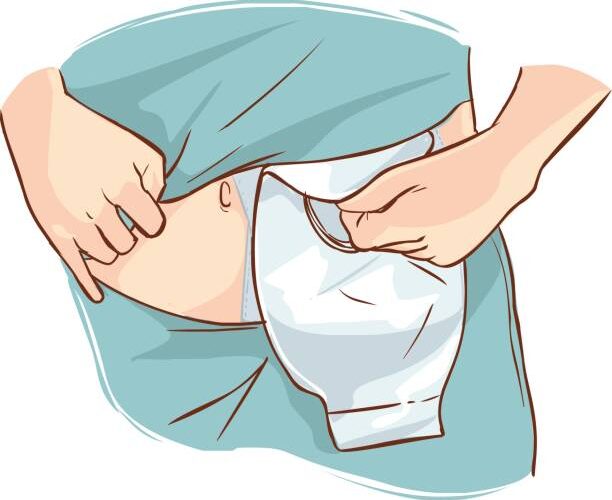Discover the vital role of a wound care nurse in ostomy care and management. Gain insights from experts on providing optimal care and support for individuals with ostomies.
Introduction
In the realm of healthcare, the expertise of a wound care nurse plays a pivotal role in ensuring the well-being and comfort of individuals with ostomies. This comprehensive guide sheds light on the critical responsibilities and skills that define the wound care nurse role in ostomy care and management. From wound assessment to patient education, this article explores every facet of this specialized nursing field.
Understanding Ostomy Care
The foundation of effective ostomy care lies in the hands of skilled wound care nurses. These professionals are equipped with the knowledge and compassion required to assist individuals in adapting to life with an ostomy. They play a central role in educating patients about ostomy appliances, providing emotional support, and monitoring for potential complications.
Wound Assessment and Management
One of the primary responsibilities of a wound care nurse in ostomy care is the thorough assessment of wounds. This includes evaluating the type, size, and location of the ostomy, as well as any associated skin issues. With meticulous attention to detail, they develop personalized care plans to promote optimal healing and prevent complications.
Stoma Site Selection and Preparation
The proper selection and preparation of the stoma site are crucial steps in ostomy care. Wound care nurses excel in identifying suitable sites, considering factors like skin condition, body contours, and lifestyle preferences. Their expertise ensures that the ostomy is placed in a location that maximizes comfort and functionality for the patient.
Appliance Selection and Fitting
Selecting the right ostomy appliance is essential for a patient’s comfort and confidence. Wound care nurses guide individuals in choosing from a range of appliances, considering factors such as stoma type, output consistency, and lifestyle requirements. They ensure a proper fit, minimizing the risk of leakage and discomfort.
Patient Education and Empowerment
Empowering patients with knowledge is a cornerstone of the wound care nurse’s role. They provide comprehensive education on self-care techniques, hygiene practices, and lifestyle adjustments. This empowers individuals to take an active role in managing their ostomy, leading to improved quality of life.
Collaborative Care Approach
Wound care nurses are integral members of a multidisciplinary healthcare team. They collaborate with surgeons, enterostomal therapists, and other specialists to ensure seamless and comprehensive care for ostomy patients. This collaborative approach enhances the overall well-being of individuals with ostomies.
Addressing Psychological and Emotional Needs
Living with an ostomy can present emotional challenges for patients. Wound care nurses offer empathetic support, addressing concerns, and providing resources for coping strategies. Their compassionate approach helps individuals navigate the emotional aspects of ostomy care.
Complication Prevention and Management
Vigilance is key in preventing complications associated with ostomies. Wound care nurses are adept at identifying early signs of issues such as skin irritation, infection, or prolapse. Through proactive measures and timely interventions, they ensure that complications are minimized, promoting optimal healing and comfort.
FAQs
How often should I change my ostomy appliance?
It is recommended to change the ostomy appliance every 3 to 5 days, or earlier if you experience any leakage or discomfort.
Can I engage in physical activities with an ostomy?
Absolutely! With the right support and guidance, individuals with ostomies can engage in a wide range of physical activities. Consult your wound care nurse for personalized advice.
What should I do if I notice skin irritation around the stoma?
If you notice any skin irritation, consult your wound care nurse immediately. They can recommend appropriate products and techniques to address the issue.
What should I do if I experience a sudden change in stoma size or output?
Sudden changes in stoma size or output may require adjustments to your care plan. Contact your healthcare provider or wound care nurse.
What are some dietary considerations for individuals with ostomies?
It’s essential for patients with ostomies to maintain a balanced diet rich in fiber, while avoiding foods that may cause excessive gas or blockages. Consulting with a healthcare provider or nutritionist can provide personalized dietary guidance.
How can wound care nurses help patients overcome the emotional challenges of living with an ostomy?
Wound care nurses can provide emotional support, connect patients with support groups, and offer resources for counseling or therapy to help individuals navigate the psychological impact of having an ostomy.
Conclusion
The role of a wound care nurse in ostomy care and management is nothing short of transformative. Their expertise, compassion, and dedication empower individuals to embrace life with confidence and dignity. By prioritizing the physical, emotional, and psychological well-being of ostomy patients, these nurses exemplify the highest standards of healthcare excellence.
Additional Resources at UOAA SUPPORT. EDUCATION. RESOURCES. ADVOCACY for new Ostomates






No Comment! Be the first one.